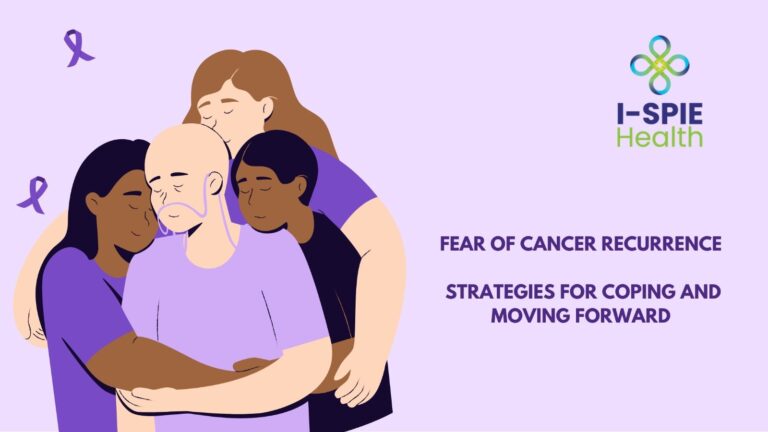Facing a parent’s cancer diagnosis can be one of the most emotionally challenging experiences a person can endure. The psychological impact of having a parent with cancer extends beyond the individual diagnosed;
It ripples through the entire family, especially affecting children. Understanding this impact is crucial for providing effective support and navigating the complexities of emotions that arise during such a difficult time.
In this blog, we delve into the psychological impact of parental cancer, exploring the emotional rollercoaster it brings and offering insights on how families can cope and thrive through this journey of resilience and love.
What is Psychological Impact?
The psychological impact refers to how an event or situation affects a person’s mental and emotional well-being. It encompasses changes in mood, thoughts, behaviors, and overall mental health. When a parent has cancer, this impact can lead to feelings of anxiety, fear, sadness, uncertainty, and other complex emotions.
Understanding this impact is crucial for providing effective support and interventions to help individuals cope with the challenges they face.
The Psychological Impact of Having a Parent with Cancer
Anxiety and Fear
Children may experience heightened anxiety and fear of cancer recurrence about their parent’s health and future. They may worry about losing their parent or not being able to cope with the changes that cancer brings.
Depression
Feelings of sadness, hopelessness, and helplessness can arise, especially if the cancer diagnosis is severe or terminal. Children may struggle to cope with the emotional weight of the situation.
Anger and Frustration
Children may feel angry about the unfairness of the situation or frustrated by their parent’s inability to make things better. These emotions can manifest as behavioral problems or mood swings.
Guilt
Children may experience guilt for feeling angry, scared, or even relieved at times. They may also feel guilty for not being able to “fix” their parent’s illness.
Changes in Relationships
The dynamics within the family may shift as roles and responsibilities change. If their parents’ illness requires significant attention, children may take on more caregiving tasks or feel neglected.
Academic Changes
The stress of dealing with a parent’s cancer can significantly affect a child’s academic performance, leading to difficulties in concentration and learning. Children may find it challenging to keep up with schoolwork or may experience a decline in grades due to the emotional burden of their parent’s illness.
Social Changes
Coping with a parent’s cancer can also impact a child’s social interactions, causing them to withdraw from friends and extracurricular activities. Children may feel isolated or disconnected from their peers as they navigate the emotional challenges associated with their parent’s cancer diagnosis.
Things you can consider when your parents have cancer(Coping Strategies)
Educate Yourself:
Learn about the type of cancer your parent has, treatment options, and what to expect during their journey. Knowledge can help you better understand and support them.
Communicate Openly:
Have honest and open conversations with your parent about their diagnosis, treatment plan, and any concerns or fears they may have. Communication is key to offering support.
Provide Emotional Support:
Be there to listen, offer a shoulder to lean on, and provide emotional support during difficult moments. Express your love and care regularly.
Discover the Compassion of Madhavi Parikh
Looking for someone to provide emotional support? Madhavi Parikh is here to listen, offer a shoulder to lean on and provide comfort during difficult moments. Experience her care and compassion firsthand.
Help with Practical Tasks:
Assist your parent with practical tasks such as scheduling appointments, organizing medical documents, and managing household responsibilities.
Attend Appointments:
When possible, accompany your parent to medical appointments. Take notes, ask questions, and offer moral support during consultations.
Research Support Resources:
Look into support groups, counseling services, and community resources available for both your parent and yourself. Support networks can provide valuable guidance and comfort.
Encourage Healthy Lifestyle Choices:
Encourage your parent to follow a healthy diet, stay physically active (if advised by their healthcare team), and practice self-care techniques like meditation or relaxation exercises.
Be Flexible and Patient:
Understand that your parent’s needs and emotions may fluctuate throughout their treatment. Be flexible, patient, and empathetic during this challenging time.
Stay Positive:
Maintain a positive outlook and encourage optimism in your parent. Celebrate milestones, focus on the present moment, and find moments of joy together.
Take Care of Yourself:
Most importantly, remember to prioritize your well-being. If needed, seek support from friends, family, or a counselor. Engage in activities that bring you joy and help you recharge emotionally.
Conclusion
In conclusion, the psychological impact of having a parent with cancer is profound and multifaceted, touching every aspect of family life. From heightened anxiety and fear to changes in relationships and daily routines, the emotional toll can be overwhelming.
However, amidst these challenges, there is resilience, love, and strength. By educating ourselves, communicating openly, providing emotional support, and seeking help when needed, we can navigate this journey with compassion and understanding.
Remember, it’s okay to feel a range of emotions, and seeking cancer consultation services and support from friends, family, or professionals can be incredibly beneficial. Together, families can find moments of joy, celebrate milestones, and create cherished memories.
Ultimately, the journey of facing cancer and with a cancer parent teaches us about the power of love, resilience, and the importance of cherishing each moment together.
FAQ
How does having a parent with cancer affect you?
Having a parent with cancer can have a profound impact on your emotional well-being. You may experience a range of emotions, such as fear, sadness, anxiety, anger, guilt, and uncertainty. The experience can be overwhelming and may affect your daily life, relationships, and mental health.
How do you stay strong when a parent has cancer?
Staying strong when a parent has cancer involves practicing self-care, seeking support from others, maintaining open communication, and focusing on positive coping strategies. It’s important to acknowledge your emotions, express them constructively, and take care of your physical and mental health.
Is having a parent with cancer trauma?
Having a parent with cancer can be a traumatic experience, especially if it involves significant emotional distress, disruption of family dynamics, or witnessing your parent’s suffering. It can lead to feelings of trauma, but it’s essential to recognize that trauma responses vary among individuals.
What are the psychosocial consequences for children of a parent with cancer?
Children of a parent with cancer may experience psychosocial consequences such as heightened anxiety, fear of loss, changes in behavior or mood, academic challenges, and difficulties in social relationships. They may also grapple with feelings of helplessness, confusion, and worry about their parent’s well-being.








One Comment